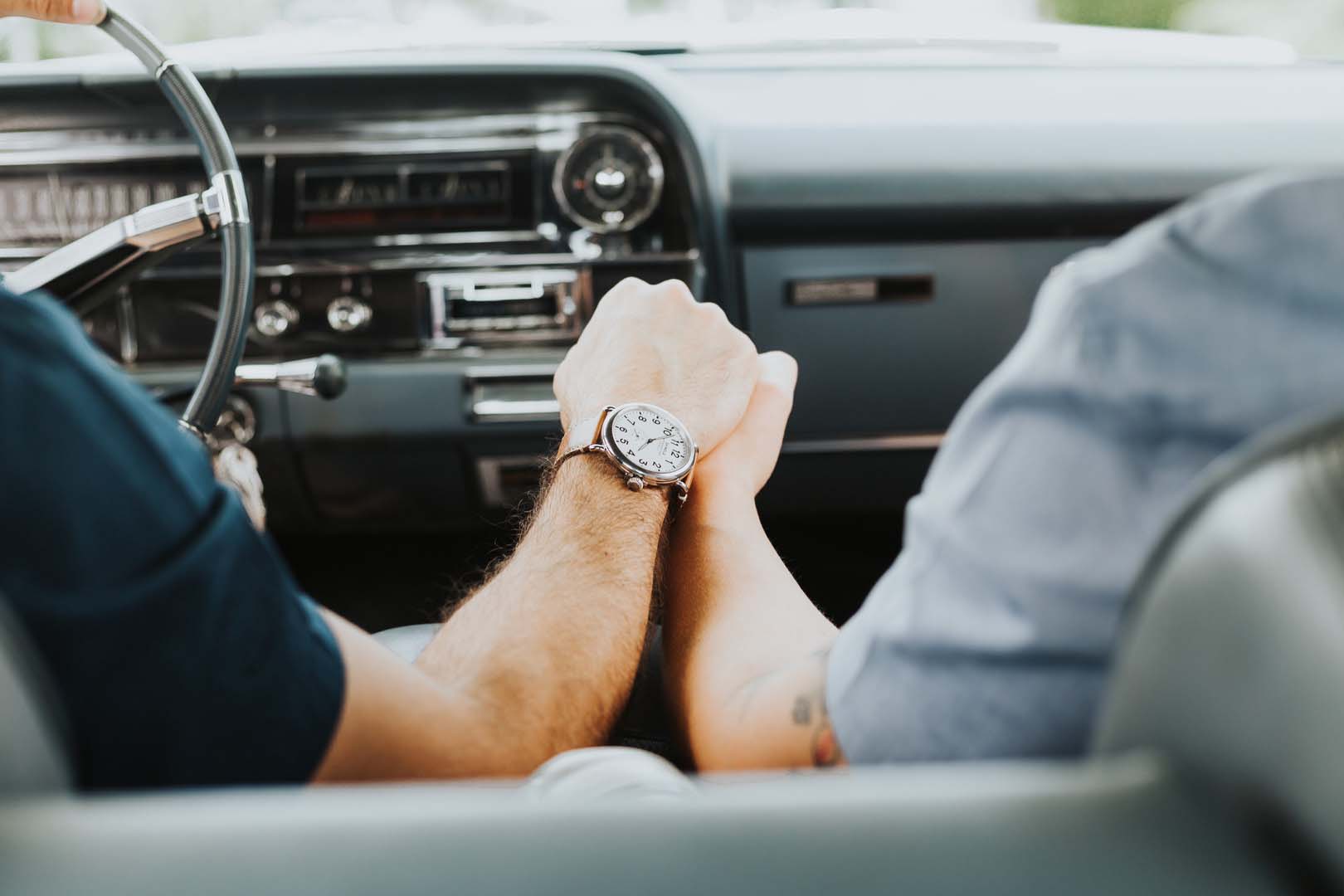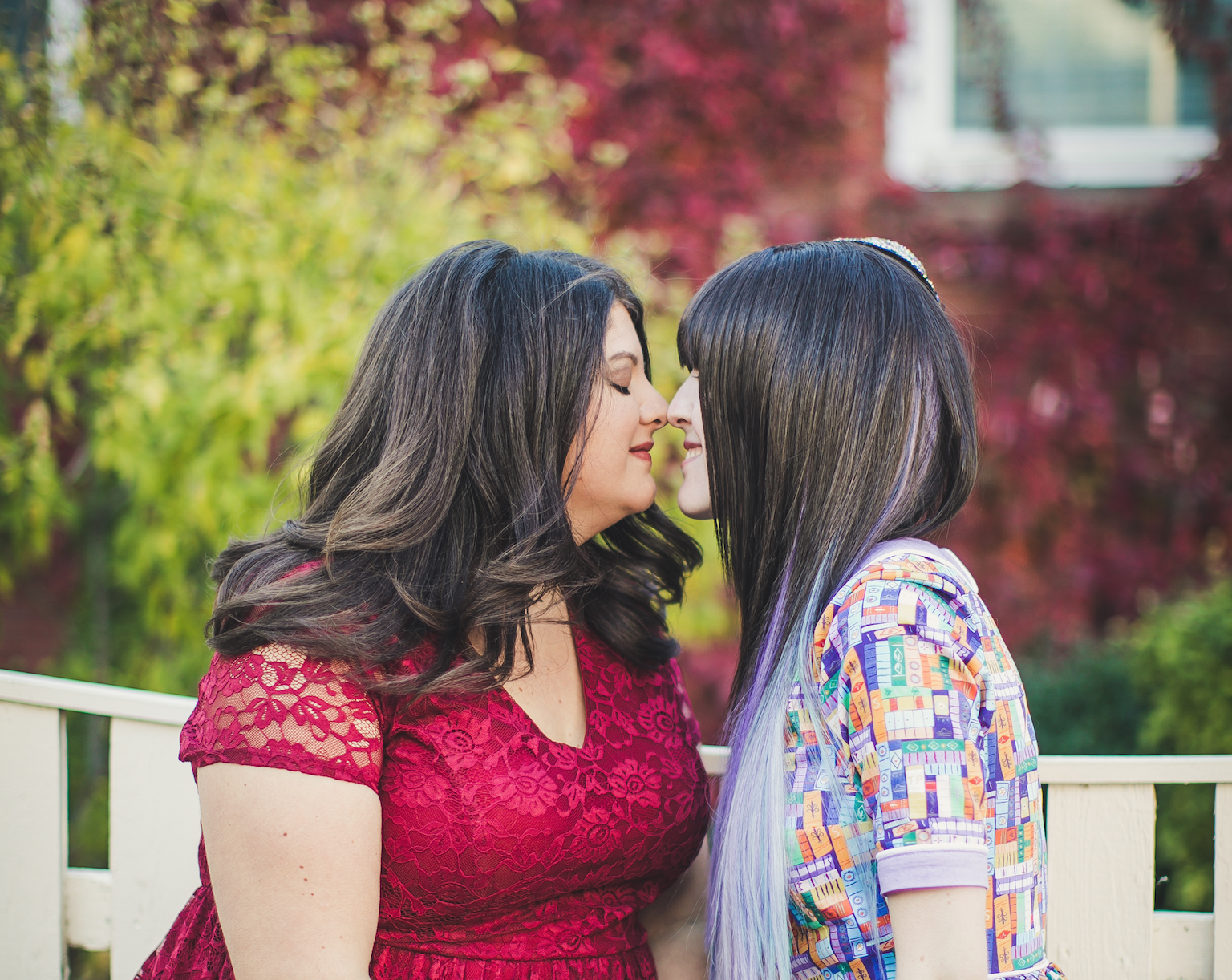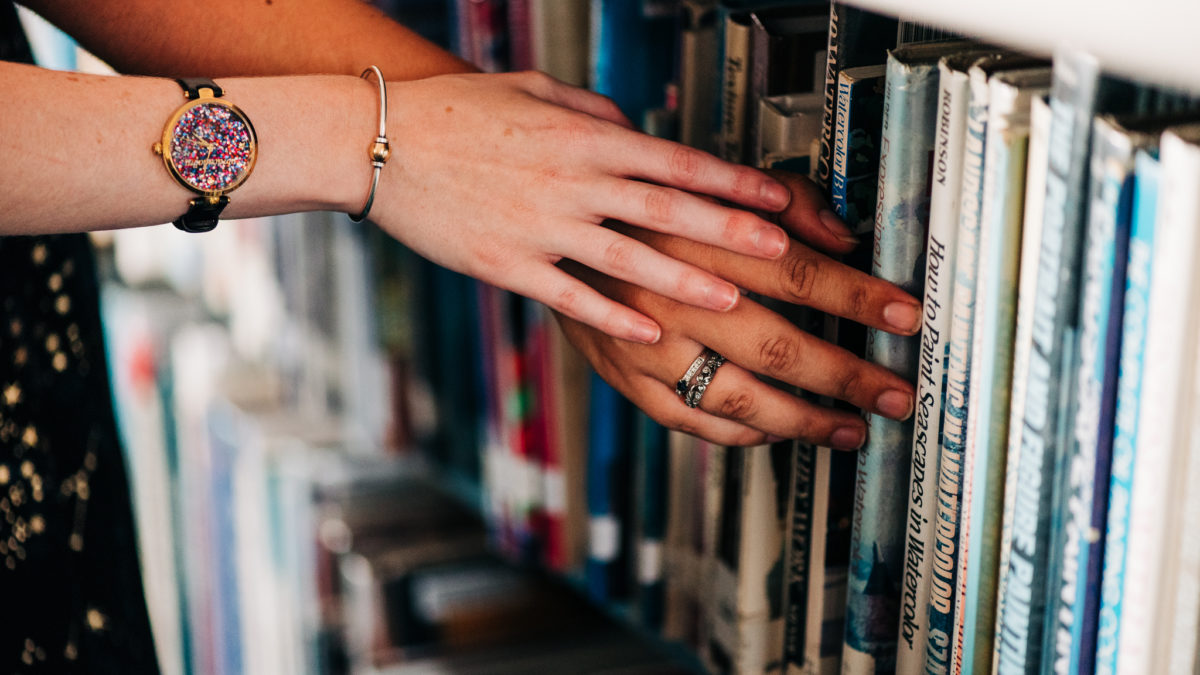I‘ve been in a relationship with my partner for almost ten years, and I have no idea how many times people have asked her if it’s hard to date a disabled person. (I actually don’t want to know.) I’m really fortunate to have a loving, supportive partner, and that’s something that all people with disabilities and chronic illnesses absolutely deserve. Dating with a disability can be a serious challenge, between constant inaccessibility and nondisabled people’s ableist attitudes toward us. If you’re nondisabled and your partner has a disability or chronic illness, here are a few ways you can use to be a supportive ally.
Make your life together accessible.
Accessibility is so often assumed to be our burden as disabled people. It’s up to us to ask if events or places are accessible and to advocate for our access needs. You can be a fantastic partner by taking on this task yourself. My partner, Macey, does this a lot when we’re making plans that involve eating. She knows I have to follow a very specific medical diet to manage my Ehlers-Danlos syndrome, and she’ll look at menus and communicate with whoever is hosting an event to make sure there’s something I can eat. This doesn’t mean you should take your partner totally out of the equation—no one knows if something is completely accessible to them except them. But it says a lot if you present us with an option and say, “I wanted to make sure this works for you.”
RELATED: HERE’S WHAT IT’S ACTUALLY LIKE TO PLAN A WEDDING WHEN YOU HAVE A DISABILITY
Don’t expect your partner to constantly educate you. Learn anything you can on your own.
There’s a lot of educating that comes with having a disability or chronic illness. I have to constantly explain to people what Ehlers-Danlos syndrome is and how it affects me, and what it’s like to be autistic. Additionally, I often have to explain to nondisabled people what ableism is, what accessibility is, what the Americans with Disabilities Act (ADA) does and doesn’t cover and why I sometimes use a cane. I have to break down common myths and stereotypes about disability, like that people who park in accessibility spots without a mobility aid are fakers or that disabled people get all kinds of special perks just for existing.
Every relationship needs to find that balance. I’m not automatically a burden on my partner just because I have a disability and she doesn’t.
Make life significantly easier for your partner by doing your own research. Read blogs by other disabled and chronically ill people, especially those who share your partner’s condition(s). Watch YouTube videos and other video blogs. Follow disabled people on social media. Read up on hashtags like #DisabilityTooWhite, #DisabledAndCute and #CripTheVote to understand what issues the disability community is facing. Learn about disability history and what how the community is thriving in the present day. Your partner will appreciate your initiative and that you’re not relying on them to be their 24/7 educational resource. You’ll also open yourself up to learning from people you may not have otherwise interacted with, and deepening your understanding of disability rights and culture.
Ask them how they’d like you to refer to them.
Like many other aspects of identity, disability is highly personal. Ask your partner how they’d like you to refer to their disability. Do they like being called disabled or a person with a disability? Do they want you to name what condition(s) they have or not? I always identify as an autistic person—not a “person with autism”—but I switch between calling myself a disabled person and a person with a disability, and I’m comfortable being called a cane user or a person with Ehlers-Danlos syndrome. Everyone is different, and you want to follow your partner’s lead on this one, and correct anyone in your life who might not identify them the way they’d like.

Challenge other people’s ableism.
Part of being a supportive ally is challenging oppression when you see it. If someone else makes an ableist comment, bring it up with them and discuss it. Make an active effort to challenge the ableist assumptions and attitudes of your friends, family and larger community. As an ally, you should be sharing resources on how to combat oppression and make the world a more accessible, less ableist place. It’s important to talk about issues like how disabled people are impacted by straw bans or universal healthcare legislation. Build it into a regular part of your life to work on unlearning your own internalized ableism and figuring out how to help other people do the same. Get involved in the community by organizing, rallying, educating and voting in favor of disability rights.
RELATED: HOW TO DATE A NONBINARY PERSON AND BE A LOVING ALLY TO THEM

Empathize as often as you can, and act with compassion.
Even if you don’t literally know what your partner is dealing with, you can be empathetic. Ask them to tell you about it if they’re comfortable, but don’t judge them or offer unsolicited advice. Instead, sit with them in their feelings and validate them. Think about how that must really be from their side, and take their perspective in the situation.
When my partner lets me talk about my fears, frustrations and celebrations related to disability, that’s when I’m able to be most honest with her. I appreciate that she reacts with empathy and compassion, allowing me to be truthful when I’m upset that my disability lost me a half day’s work or made me late for an event I really wanted to go to. I love that she doesn’t force a positive mindset on me and lets me find gratitude in my own time. It helps that she makes space for my complex emotions and doesn’t try to downplay them with platitudes or to try to fix them by asking if I’ve tried yoga. She’s also right there with me when I want to show my disability pride or celebrate who I am, like when I posted a cute photo when #DisabledAndCute went viral or when I publicly share my writing about the disability community.
Don’t make assumptions about their independence—or that interdependence is a bad thing.
I love it when the people in my life let me make my own choices about independence. If I need help opening a door or carrying my food to my seat, I’ll let you know. Otherwise, I’d like to give it a try myself. I appreciate that my partner lets me do my own thing but is ready to jump in when I need a hand—sometimes literally, as is the case when it’s icy in the winter and I hold her for support.
It’s also helpful if you reconsider your values about interdependence. Particularly in Western culture, we’re often taught that complete independence, whatever that even means, is the only way and being dependent on others makes you a burden. In reality, we’re all interdependent on one another. You might rely on the train driver to get you to work or on the postal service worker to bring your check from your employer. Make space for more interdependence in your life, and open yourself up to the vulnerability of being more deeply connected through interdependence.
For disabled and chronically ill people, this comes up a lot, whether we need to ask for help reaching something or for graciousness if we need to cancel at the last minute due to illness. If you’re willing to accept interdependence, you’ll create an honest, grateful relationship with your partner. There are times when we all need something or someone, and we’re better off admitting it. I help my partner argue with the phone company because I have excellent negotiating skills, and every relationship needs to find that balance. I’m not automatically a burden on my partner just because I have a disability and she doesn’t.
She’s also right there with me when I want to show my disability pride or celebrate who I am.
Your relationship with your disabled or chronically ill partner will be better if you make time to understand their perspective and spend time working to be an actively supportive ally. Ask them what they need—and then show up, whether that means texting to check in or dropping by with some groceries. We could all use a compassionate partner who truly shows up for us when we need it most.
































